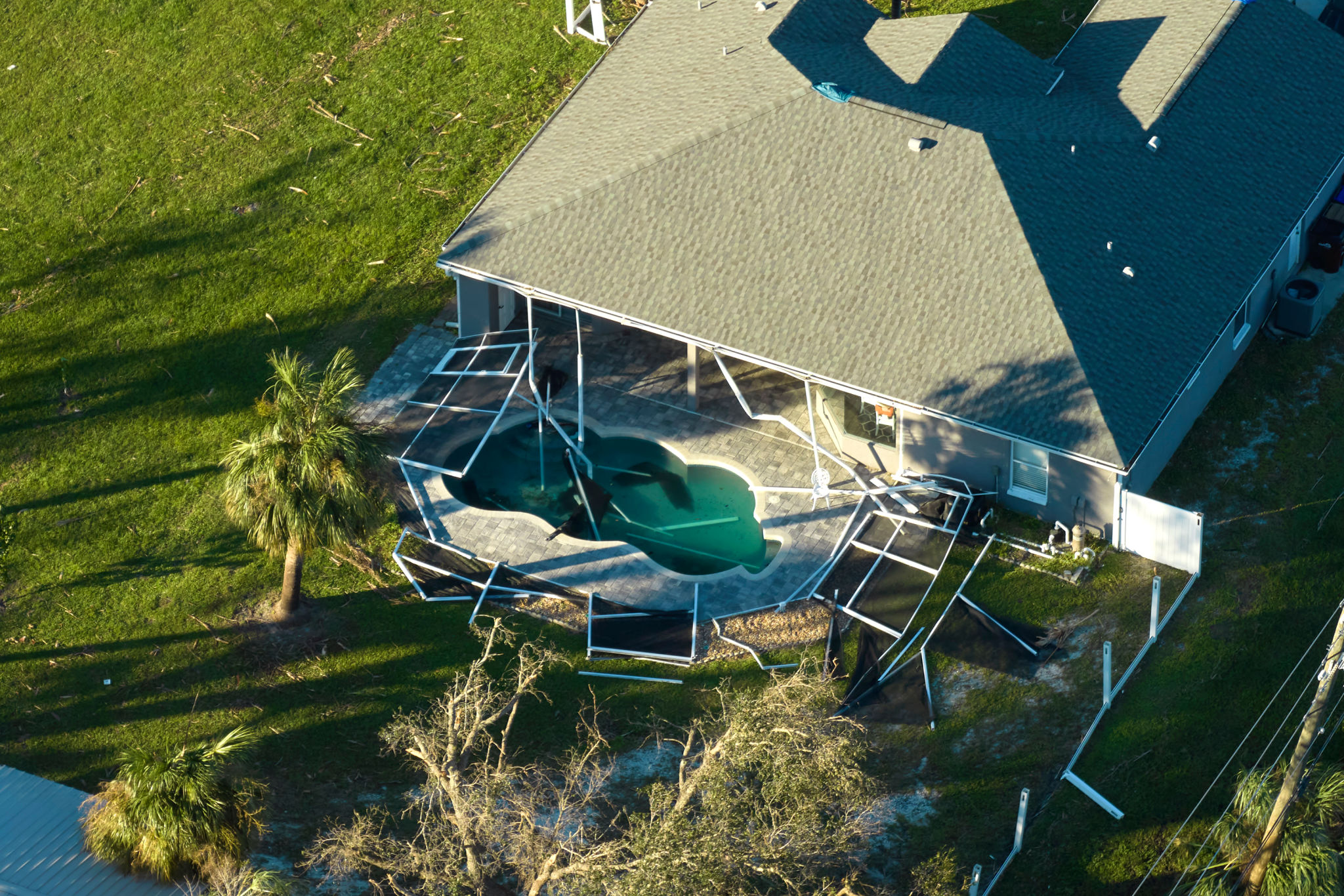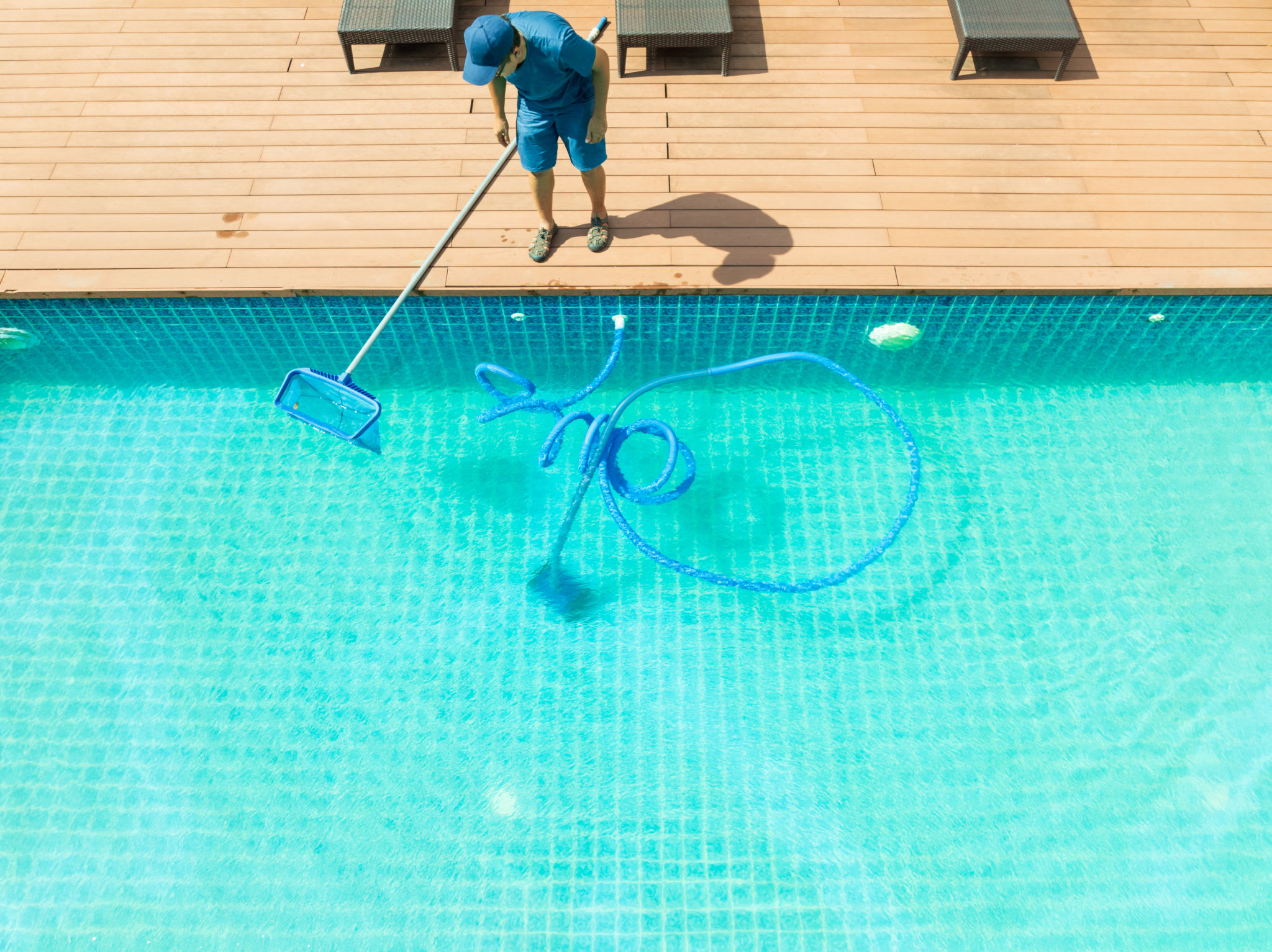Preparing Your Pool for the Florida Hurricane Season
Understanding the Importance of Pool Preparation
As Florida's hurricane season approaches, homeowners with swimming pools must take proactive steps to safeguard their property. Hurricanes can bring high winds, heavy rains, and flying debris, all of which pose a threat to your pool. Proper preparation can minimize damage and reduce the time and cost required for post-storm cleanup.
Preparing your pool not only protects the pool itself but also ensures the safety of your home and yard. Taking the right precautions can prevent accidents and mitigate potential hazards associated with hurricanes.

Balancing Pool Chemistry
One of the first steps in preparing your pool for a hurricane is ensuring that the water chemistry is balanced. Before a storm hits, add extra chlorine or shock treatment to the pool. This helps prevent contamination from debris and rainwater, which can introduce bacteria and algae.
It’s also essential to lower the water level by one or two feet to accommodate heavy rainfall. However, be cautious not to drain the pool completely, as this can lead to structural damage due to hydrostatic pressure.
Securing Pool Equipment
Your pool's equipment is vulnerable during a hurricane. To protect pumps, filters, and heaters, consider turning off the power supply and covering them with a waterproof tarp. If possible, move portable equipment to a secure indoor location to prevent damage from wind and water.
Ensure that all electrical cords are disconnected and stored safely. This precaution helps prevent electrical hazards and ensures that your equipment is ready for use post-storm.

Protecting Pool Accessories
Remove any loose items from around the pool area, including furniture, toys, and flotation devices. These items can become dangerous projectiles in high winds. Store them in a secure location indoors to prevent damage to both the items and your property.
If you have a pool cover, it may seem counterintuitive, but it's often best not to use it during a hurricane. The cover can be damaged by debris or high winds, leading to costly repairs or replacement.
Post-Storm Cleanup and Inspection
After the storm has passed, it’s crucial to inspect your pool and surrounding area for damage. Remove any debris from the pool using a skimmer or net. Check the water chemistry once more and adjust as needed before reopening the pool for use.
Inspect all equipment thoroughly before turning it back on. If you notice any damage or malfunctions, contact a professional for repairs to ensure safe operation.

Conclusion: Being Proactive and Prepared
Preparing your pool for Florida's hurricane season requires planning and proactive measures. By balancing water chemistry, securing equipment, and safeguarding accessories, you can protect your investment and ensure a swift recovery after severe weather. Being prepared not only saves time and money but also provides peace of mind as you navigate the challenges of hurricane season.
Remember, safety is paramount. Always follow local advisories and evacuation orders when necessary, prioritizing the well-being of yourself and your family above all else.
